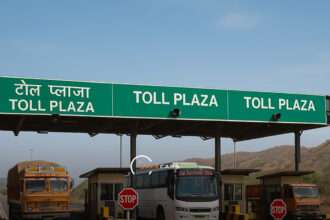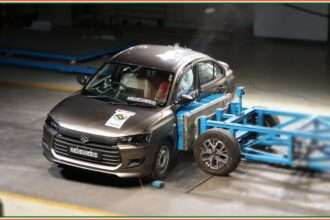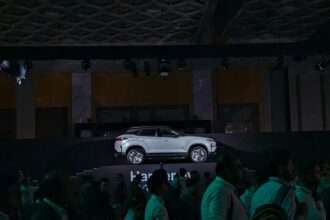In a momentous achievement for both Hyundai and automobile safety in India, the new Hyundai Verna has clinched a remarkable 5-star safety rating in the latest round of Global NCAP crash tests. This significant accomplishment positions the Verna as the first Hyundai vehicle to attain the coveted 5-star rating from Global NCAP. The testing was conducted under the Safer Cars for India program, with the Verna emerging as a testament to Hyundai’s commitment to passenger safety.
Safety Features and Testing
The Hyundai Verna that underwent testing was designed and manufactured in India specifically for the Indian market. It came equipped with a comprehensive safety suite, including six airbags, Electronic Stability Control (ESC), rear ISOFIX mounts, and seatbelt reminders for all seats, as standard features.
Adult Occupant Protection
During the rigorous testing process, the Hyundai Verna excelled in adult occupant protection, amassing a total of 28.18 points out of a possible 34. Although the bodyshell integrity was assessed as unstable under further loadings, the Verna demonstrated impressive safety results. Notable strengths included good protection for the driver’s and passenger’s head and neck in frontal impact tests, with the passenger’s chest protection rated as good. However, the driver’s chest protection was deemed marginal, and both the driver’s and passenger’s knees showed marginal protection due to potential impact with structures behind the fascia. The footwell area was also categorized as unstable.
In side impact tests, the Verna provided good protection for the head, pelvis, and abdomen, while chest protection was considered adequate. The vehicle earned an ‘OK’ rating in the side pole impact test, offering good head and pelvis protection, marginal chest protection, and adequate abdominal protection.
With ESC as a standard feature, the Verna’s performance met Global NCAP’s requirements, in addition to complying with UN 127 and GTR9 pedestrian protection standards.
Child Occupant Protection
The Hyundai Verna further excelled in child occupant protection, securing 42 out of 49 possible points. This included a perfect score of 12 out of 12 points for Child Restraint System (CRS) installation and 24 out of 24 in the dynamic score category.
Global NCAP conducted tests using child dummies, representing an 18-month-old and a 3-year-old child, both facing rearward. The seats were installed using i-size anchorages and a support leg, effectively preventing head exposure during frontal crashes. The CRS provided comprehensive side impact protection.

While the Verna boasts 3-point seatbelts in all seating positions as standard, it lacks the option to disengage the front passenger airbag when a rearward-facing CRS is installed in that position.
Conclusion
The Hyundai Verna’s remarkable achievement of a 5-star Global NCAP safety rating underscores its dedication to ensuring the safety of Indian consumers. This achievement also reaffirms Hyundai’s commitment to providing vehicles equipped with advanced safety features, setting new benchmarks for the Indian automotive industry.
In comparison to its rivals in the midsize sedan segment, such as the Slavia and Virtus, the Hyundai Verna joins the ranks of 5-star rated cars. While all three vehicles achieved the prestigious rating, the latter two exhibited marginally better performance in adult occupant protection and maintained stable body shell integrity.
The Hyundai Verna’s outstanding safety performance marks a significant milestone in the pursuit of safer vehicles on Indian roads, aligning with the evolving safety preferences of Indian car buyers.




